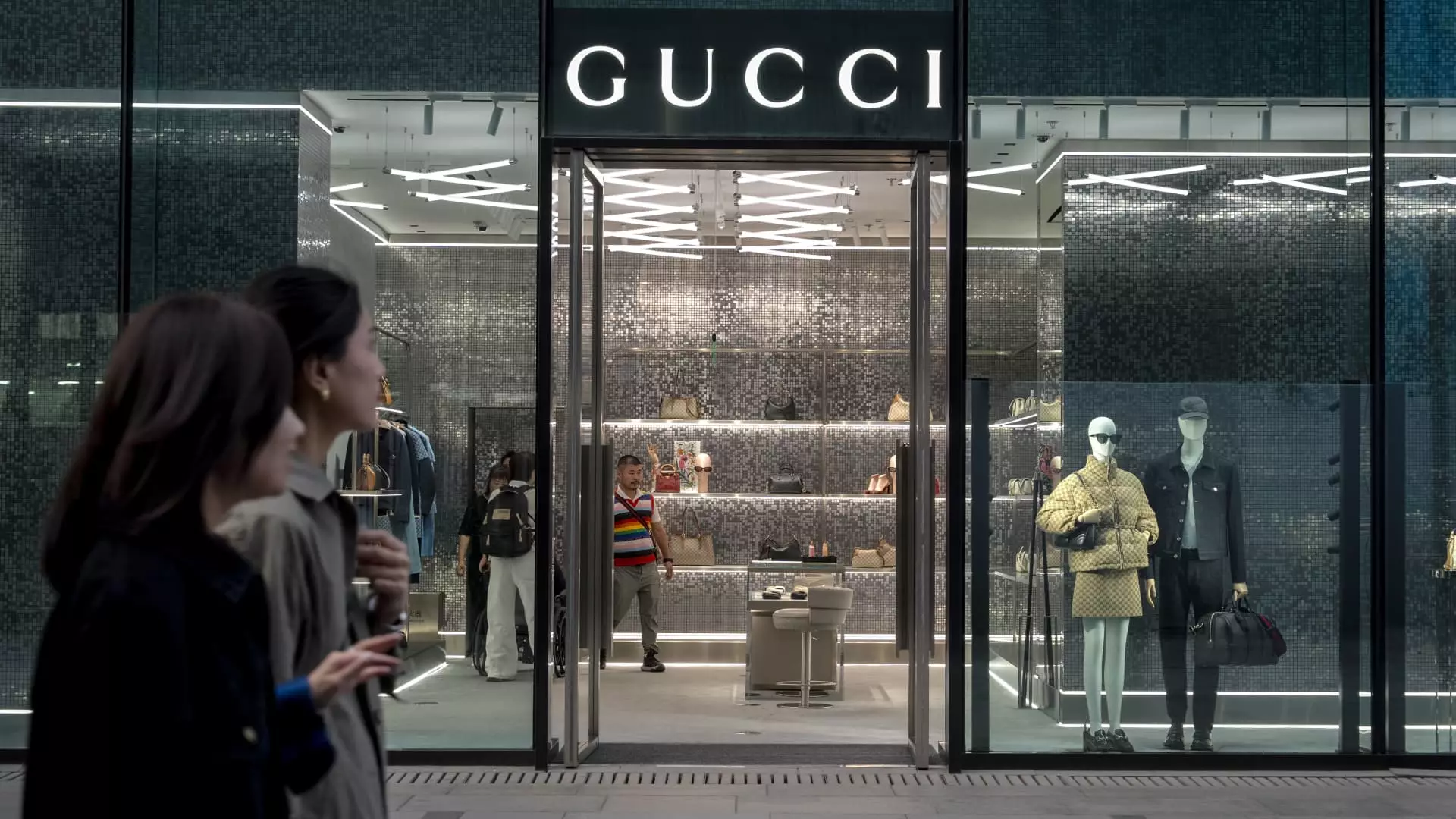Kering, the French luxury goods powerhouse renowned for its prestigious labels including Gucci, Bottega Veneta, and Balenciaga, recently unveiled its fourth-quarter sales figures, which while slightly surpassing market expectations, reflect a concerning downturn. In stark contrast to last year’s robust performance, Kering reported a 12% decline in quarterly revenues, totaling €4.39 billion ($4.52 billion). Analysts had anticipated revenues around €4.29 billion, highlighting a minuscule consolation amidst the backdrop of financial decline.
The illustrious Gucci brand, which comprises nearly half of Kering’s overall sales, has faced significant challenges, reporting a staggering 24% annual drop in sales for the quarter, amounting to €1.92 billion. This stark decrease underscores a troubling trend for what was once Kering’s flagship brand, indicating a broader struggle for the company as it navigates through shifting consumer preferences and economic turbulence.
In examining the broader financial picture, Kering’s annual sales also saw a considerable dip, decreasing by 12% to €17.19 billion, marginally higher than analysts’ projections of €17.09 billion. The operating income for the year was reported at €2.55 billion, aligning with Kering’s updated forecast from October. However, this figure represents nearly half of the previous year’s operating income of €4.75 billion, revealing substantial erosion in profitability.
Despite a minor increase in share prices, which initially surged by 6% before settling at a modest 0.5% increase, the market response reflects ongoing skepticism towards Kering’s recovery trajectory. François-Henri Pinault, chairman and CEO, expressed a commitment to revitalizing the company’s brand health and desirability long-term. His assertion of having positioned Kering for stabilization suggests potential optimism, yet also implies an acknowledgment of the formidable challenges that lie ahead.
The luxury market has been experiencing a tumultuous period, particularly evident in Kering’s results. The company pointed to a slight uptick in sales across the Asia Pacific and North American markets for its brands, including Gucci and Yves Saint Laurent. However, specifics regarding individual market performance remain vague, amplifying uncertainty among investors regarding the trajectory of recovery.
As Kering joins other luxury firms in presenting earnings reports, there is a palpable expectation for signs of revival in a sector hindered by wavering consumer spending, especially within the pivotal Chinese market. This concern has been echoed across the board, following lackluster results from LVMH, indicating that optimism regarding a sector-wide rebound may have been premature.
A critical element in Kering’s strategy appears to hinge on leadership changes, particularly concerning the Gucci brand. The recent departure of Sabato De Sarno, Gucci’s design chief, marks a pivotal shift, especially given that this is the first significant alteration since Stefano Cantino took over as CEO last year. The brand has witnessed an identity crisis, with De Sarno’s minimalist approach struggling to resonate with consumers after Alessandro Michele’s more exuberant designs shaped its recent history.
As Kering signals hope for a brand reset through this shift in creative leadership, market analysts remain cautiously optimistic. Simone Ragazzi from Algebris Investments noted that while there is anticipation for a reinvigorated Gucci, lingering legacy issues pose considerable challenges to the brand’s resurgence. Kering’s stocks have struggled significantly, down roughly 2.5% from the previous year, and with market observers projecting cautious recovery coupled with elevated expectations for the upcoming design leadership, Kering continues to face a steep uphill battle.
Kering is at a critical juncture, wrestling with declining sales figures, pressure on its core Gucci brand, and a larger luxury market in flux. The shifts in leadership and strategic focus are designed to stabilize the brand’s image and financial health, yet the company must navigate these turbulent waters with strategic acumen. As Kering plots its way forward, the luxury sector’s recovery will likely hinge not just on brand adjustments but also on broader economic patterns and changing consumer behaviors in a post-pandemic landscape. The coming months will be crucial for Kering as they seek to reclaim their position in the highly competitive luxury arena.

